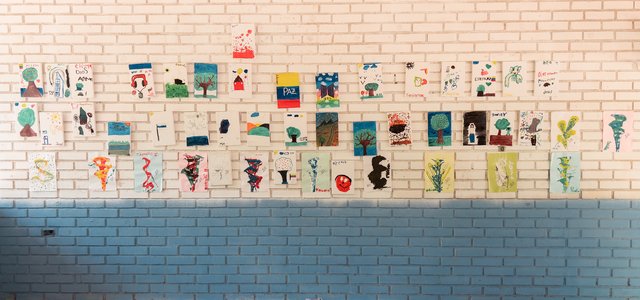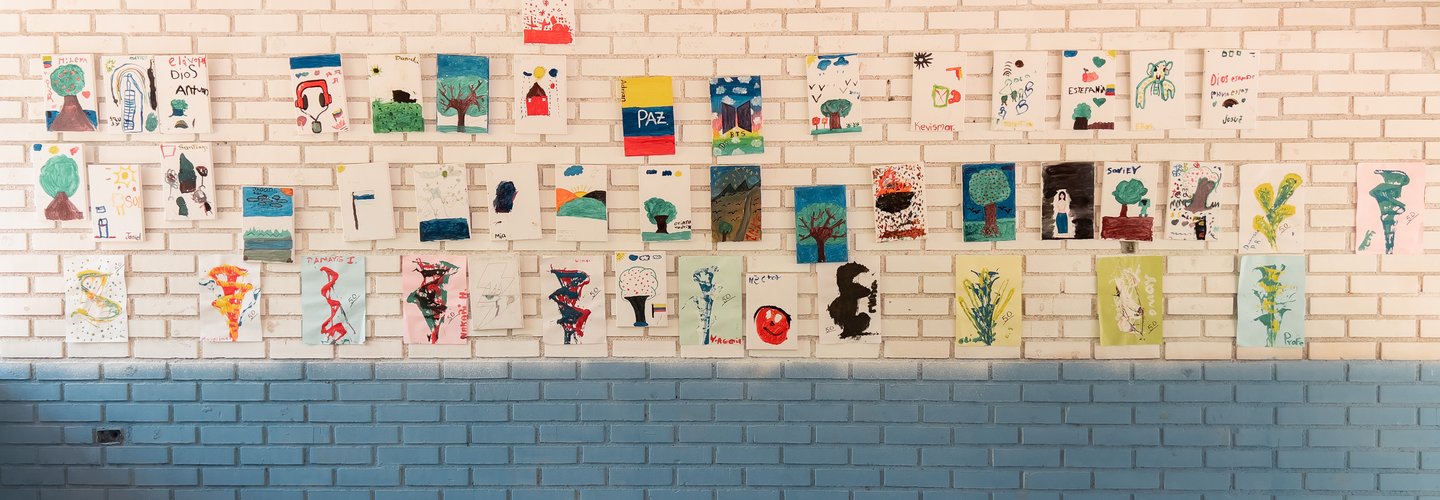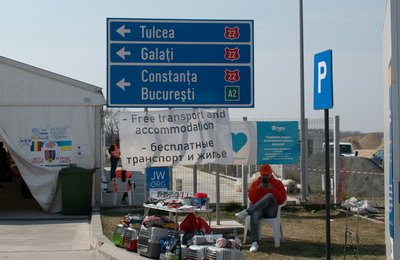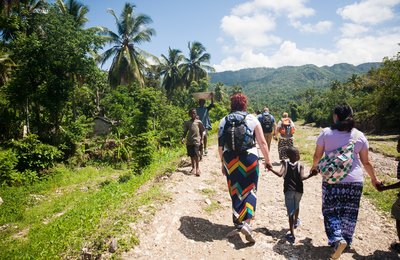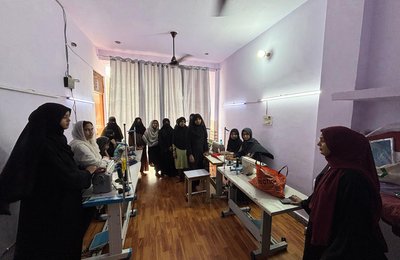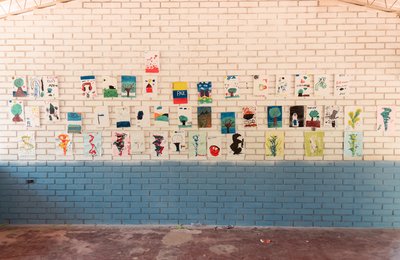The Women Rescuing Children and Rebuilding Peace in Colombia’s Catatumbo
In Colombia’s Catatumbo region, even small acts of solidarity are treasured by the Mothers of Catatumbo for Peace (Madres del Catatumbo por la Paz). Sometimes, when a woman in the group needs comfort, the others softly hum and sway into a wordless arrullo – a lullaby usually sung to soothe babies. Many have lost loved ones, fled their homes, or seen their children recruited by armed groups. This quiet ritual turns individual pain into a shared sorrow – a symbol of peace in a region long scarred by conflict.
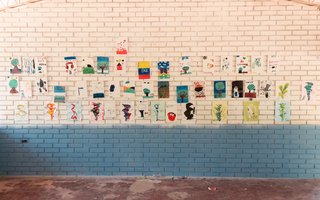
But the group’s mission goes far beyond brief moments of solace.
Together, they advocate for peace through dialogue, marches, workshops and education. Central to their mission is rescuing children from armed groups and preventing others from being recruited.
As the organisation’s Founder and Director, Carmen García, puts it: “We didn’t give birth to children for them to go to war.”
A country and a region scarred by conflict
Colombia’s decades-long armed conflict involved ideological differences and violent clashes between left-wing guerrillas, state forces, and right-wing paramilitaries. Despite a 2016 peace deal between the Revolutionary Armed Forces of Colombia (FARC) and the government, violence still permeates parts of the country. While most FARC members are disarmed, some dissidents continued fighting, as did pre-existing groups like the National Liberation Army (ELN) and newly armed and criminal factions.
In Catatumbo, what began as an ideological conflict has fractured into a violent struggle over land, coca crops (the raw ingredient for cocaine) and trafficking routes. Catatumbo has also faced historic state neglect, with a severe lack of formal employment and access to comprehensive, safe education – increasing the recruiting power of the armed groups.
Local communities bear the weight of the conflict and neglect. Men are sometimes drawn into the fighting, women face sexual and physical violence and families are torn apart – sometimes with a son in one armed group, and another son in an opposing one. Children as young as ten are manipulated into joining these armed groups through promises of cash or phones, while others are forcibly taken or threatened.
“They show them a photo of your mother or father and say, ‘If you want them to stay alive, start the training,’” explains Adriana, from Mothers of Catatumbo, who is using a pseudonym due to security fears. Some women in the group have received threats for their work.
Protecting childhoods through peace
Years of state neglect and violence have pushed communities – and people like García – to create grassroots efforts to defend rights and build peace.
García grew up surrounded by grief: the cries of mourning mothers and wives, the deaths of friends and family – including her husband, a civilian, killed by the military.
When she realised the state wasn’t going to save Catatumbo’s children, she decided to act.
In 2018, she founded Mothers of Catatumbo for Peace. The women – numbering 36 to start with – organised sports and activities for children, using their own money for prizes. They set up a shelter and school for children out of formal education, offering protection and care.
Helping children inside armed groups was harder. To do this, she made contact with the commanders’ female relatives. “I told them: ‘You couldn’t save your own son – because I don’t believe he’ll come back the same – but help me save another mother’s child. Become the Mothers of Catatumbo.’”
Many agreed – and they also reached a deal with the armed groups: if a child was under 14 and wanted to leave, commanders would hand them over to the mothers. “[...] it was a major agreement,” García says, though not all commanders have followed it.
So far, they have rescued more than 250 children – 60 in 2025 alone – and prevented the recruitment of hundreds more.
Once a woman realises a child is in danger, they will message the other women to alert them. “When the alarm goes off, we put the child – or the whole family – into hiding. Adriana explains. Then we activate the emergency route through the Mayor’s office so that they’re relocated to live safely somewhere else.”
What began as a small network is now a movement of 800 women, working to rescue children and build peace, which includes collaborating with both grassroots organisations and international ones, such as the UN and Red Cross.
Pain and peacebuilding amid a surge in violence
Despite successes, setbacks persist. In January 2025, a massacre in Catatumbo killed at least 80 people – the deadliest since 1997 – quickly displacing more than 50,000 people amid fighting between the ELN and Estado Mayor Central (EMC). National and international NGOs raised concerns that more children were vulnerable to recruitment.
This led to an even more acute funding gap for the group – which relies on donations, and money collected through activity days and raffles within local communities – amid trying to help those displaced needing emergency supplies. Furthermore, though the withdrawal of major donors like USAID didn’t affect them directly, it left many other local projects without vital financial support, exacerbating an already underfunded crisis.
The group also faces ongoing efforts to silence them - mainly through social media intimidation by individuals outside armed groups - who aim to promote a false image of peace in Catatumbo to secure continued government investment in development and security projects.
The Mothers of Catatumbo for Peace have repeatedly used social media to call for peace. In one open letter to the ELN and EMC armed groups, they urged “dialogue, not bullets.” President Gustavo Petro retweeted the message, calling on others to listen.
When President Petro took office in 2022, he pledged to end existing conflicts through negotiation with all groups, marking a break from some past military-focused approaches. However, talks have repeatedly broken down.
Despite broken promises, the Mothers of Catatumbo continue rescuing children and advocating for more opportunities for the region’s youth and wider community. At roundtables, they engage with a variety of actors, including local and national government. They have educated themselves about Colombia’s Victims’ Law (Law 1448), which guarantees access to reparations and participation in peace processes.
Participation in victims’ roundtables - where survivors of conflict advocate for their rights - and local peace councils that bring together community leaders, women’s groups, NGOs, and government officials, has led to tangible progress. This includes the creation of official channels for reporting threats, violence, and the recruitment of children. Having a formal mechanism is a key step, allowing the group to document abuses, push for institutional responses, and demand accountability.
This engagement - both with external actors and within their own community - is also a source of strength for the women themselves.
“Right now, we’re focused on empowering ourselves as women and leaders, supporting one another through psychosocial workshops,” García said. The bonds they’ve built foster healing and sustain their resilience, even as these women come from communities and families divided by the conflict. “The most beautiful thing is that they still love and speak to each other, even though their children are fighting [on opposing sides].”
For the Mothers of Catatumbo, peace means more than survival – it means a future where lullabies are sung to lull children to sleep, not to soothe a mother’s heartache.
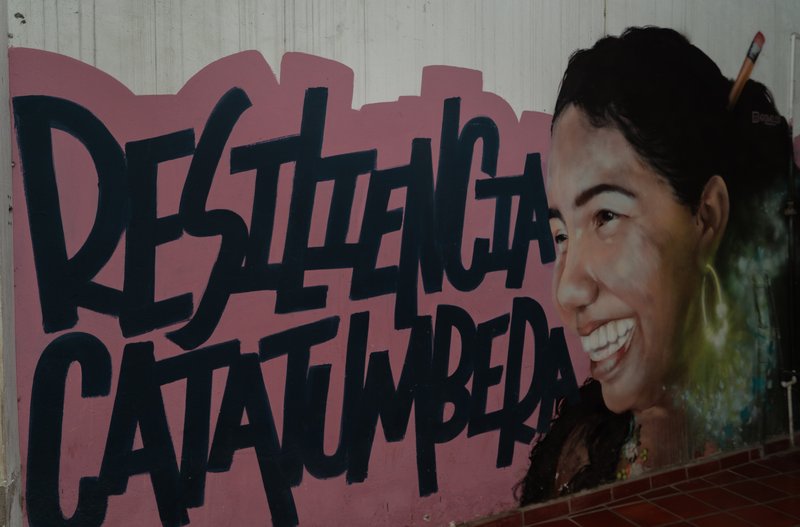
Further Links:
Madres del Catatumbo
https://www.facebook.com/people/Madres-del-Catatumbo-por-la-Paz/100071726635547/
Peace deal
https://www.cancilleria.gov.co/sites/default/files/Fotos2016/12.11_1.2016nuevoacuerdofinal.pdf
UN displacement figures
Children vulnerable to recruitment - Save the Children
https://www.savethechildren.net/news/more-46000-children-out-school-catatumbo-region-colombia-facing-threats-kidnapping-recruitment
Total Peace - Council on Foreign Relations
https://www.cfr.org/blog/total-peace-dead-petro-partial-peace-best-remaining-option
Colombia Victims’ Law
https://www.unidadvictimas.gov.co/wp-content/uploads/2021/03/law1448of2011-perspectivesonthesatisfactionoftherightsofvictimsabroad.pdf


